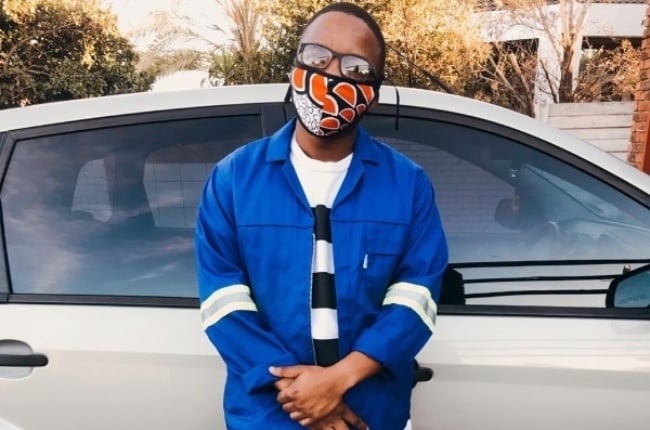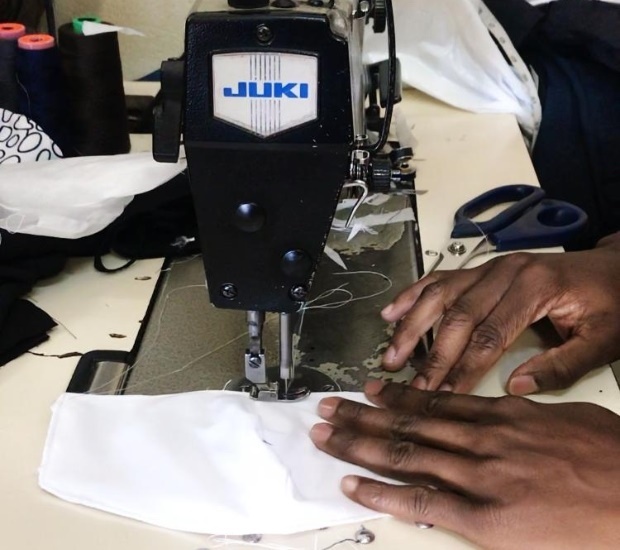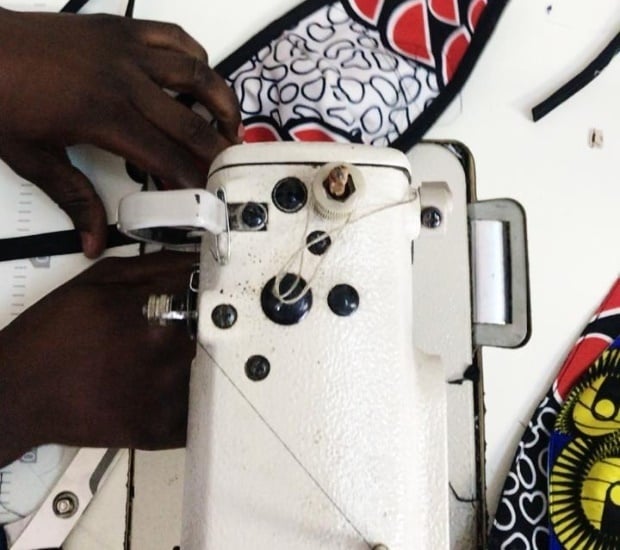
This master’s graduate is fighting coronavirus – one mask at a time.
Ofentse Rabaji, a North West University (NWU) environmental management master’s graduate, has decided to use his academic background to start a project that produces face masks from leftover or “scrap” fabric.
The 27-year-old from Potchefstroom spotted the opportunity during lockdown.
“The idea has always been at the back of my mind for the longest time now. The recent implementation of the project comes as no surprise at all. It’s rather more relevant now than ever,” says Ofentse, who with his team establishedRe Fentse Environmental Solutions, a black-owned company.
Their project is all about sustainability-driven innovation. “We use what’s referred to as ‘scrap’ or ‘leftover’ fabric – 100% cotton preferably – to make reusable, multi-layered masks, as per the SA government regulations.
“We decided to go with 100% cotton because for one it’s easily accessible, it has greater cooling properties, it’s soft, and it’s relatively stronger and easy to wash and easily taken care of – 100% cotton is really easy to work with,” he says.
The masks are R35 each, with discounts on bulk purchases. There’s an additional courier fee for orders outside of Potchefstroom
Managing the business was slightly tough in the beginning, says Ofentse.
“At first getting the message across was really difficult as this initiative was misunderstood for a profit-based project.
“However that only pushed us to put in more work in getting the word out there. We used platforms such as social media and the local radio station.”
He adds that accessing material has become difficult and not as easy as before. “Some of the materials used to make the masks are quite expensive, which is why some of the money made is used to buy material such as spunbond and bias binding.
“In the future, we intend on asking our tailors to make use of fabrics instead of bias binding as it’s more expensive.”
But there’s light at the end of the tunnel as more people are now aware of the initiative. “The support has been amazing. People now want to partake in such initiatives – those that bring about change in the community and just the world at large,” he says.
“This served as an inspiration to a lot of people out there, particularly those who have always wanted to do something of this sort but allowed fear to derail them.”
Ofentse says the number of masks they make per day is dependent on the orders they receive, but on average they make about 20.
“The people I work with have other tailoring-related work to do, therefore they don’t only focus on our requirements.
“At this stage, we don’t have our own resources, hence we’ve identified local tailors to work with.”
A mask can be made in about 20 minutes or even less, depending on the number of people working on the project, he says.
Source: Twitter




 Publications
Publications
 Partners
Partners


















